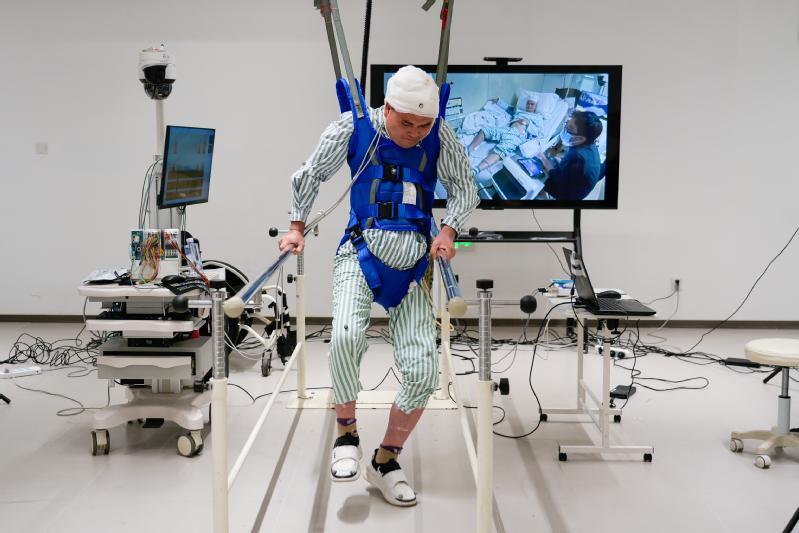
AI-powered Brain-Spine Chip Helps Paralysed Patients Walk Again in China
In a groundbreaking medical breakthrough, a team of Chinese researchers at Fudan University has successfully developed a brain-spinal interface (BSI) that restores movement in paralysed patients. This innovative technology, powered by artificial intelligence (AI), has the potential to revolutionize the treatment of spinal cord injuries and other motor disorders.
The research team, led by Professor Jia Fumin, constructed a nerve bypass between the brain and spinal cord using AI-assisted implantation of electrodes. This pioneering procedure, which took just four hours to complete, was performed on one of the patients. The remarkable outcome was that the patient regained leg movement within 24 hours post-operation, according to Fudan University.
This groundbreaking achievement is a major step forward in the field of neural prosthetics and has significant implications for the treatment of paralysed patients worldwide. The BSI technology has the potential to restore motor function in individuals with spinal cord injuries, stroke, and other neurological disorders.
The development of the BSI technology was made possible through the collaboration of experts from various fields, including neurology, electrical engineering, and computer science. The team used AI algorithms to analyze the patient’s brain signals and develop a personalized treatment plan. This personalized approach enabled the team to optimize the BSI’s performance and achieve more accurate and effective motor control.
The BSI technology works by bypassing damaged areas of the spinal cord and directly connecting the brain to the muscles. This allows patients to regain motor function and control over their limbs. The AI-assisted implantation of electrodes ensures that the BSI is precisely positioned and configured to optimize the patient’s motor function.
The success of the BSI technology was demonstrated in a clinical trial involving a patient who had been paralysed for several years. Prior to the procedure, the patient was unable to move their legs or control their bladder function. However, within 24 hours of the operation, the patient was able to stand up and take a few steps with the help of a walker.
This remarkable outcome is a testament to the power of AI and neural prosthetics in restoring motor function and improving the quality of life for paralysed patients. The BSI technology has the potential to revolutionize the treatment of spinal cord injuries and other motor disorders, and could lead to a new era of independence and mobility for individuals with these conditions.
The development of the BSI technology is also significant because it demonstrates the potential of AI to improve healthcare outcomes. The use of AI algorithms in the development of the BSI technology enabled the team to analyze large amounts of data and optimize the treatment plan for each patient. This personalized approach has the potential to improve the accuracy and effectiveness of medical treatments, and could lead to better outcomes for patients.
In conclusion, the development of the AI-powered brain-spine chip is a major breakthrough in the field of neural prosthetics and has significant implications for the treatment of paralysed patients. The BSI technology has the potential to restore motor function and improve the quality of life for individuals with spinal cord injuries and other motor disorders. With further research and development, this technology could lead to a new era of independence and mobility for paralysed patients worldwide.
News Source:






